Aluminum alloy wheels have transformed automotive design and performance, gaining widespread acclaim for their blend of style and substance in the automotive industry. These lightweight yet durable wheels have not only enhanced the aesthetic appeal of vehicles but also significantly improved handling and fuel efficiency. With their ability to dissipate heat effectively and provide better brake performance, aluminum alloy wheels have become a staple choice for manufacturers and enthusiasts alike, setting a standard for modern automotive engineering. In this article, we delve into the evolution, benefits, and technological advancements of aluminum alloy wheels, exploring how they continue to shape the driving experience today.
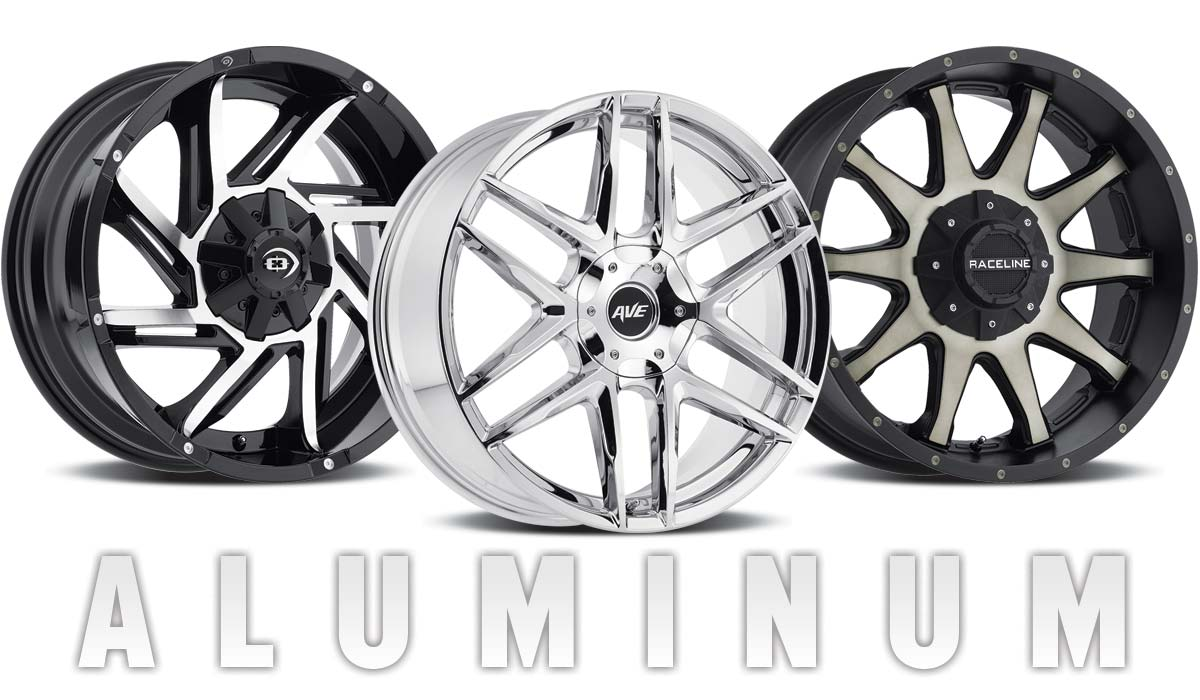
Aluminum alloy wheels become popular with both style and substance in the world of cars.
Aluminum alloy wheels represent a seamless fusion of performance and aesthetics, standing as a pivotal component in the realms of both vehicle dynamics and design. Crafted from an amalgamation of aluminum and other strategic metals, these wheels epitomize the perfect balance of strength, weight, and durability.
Their lightweight nature not only reduces unsprung mass but also enhances handling and fuel efficiency, contributing to an overall improved driving experience. Beyond their functional benefits, aluminum alloy wheels have become a hallmark of modern automotive styling, offering a sleek and contemporary appearance that complements a wide range of vehicle types, from sports cars to SUVs.
As advancements in materials science and manufacturing techniques continue to evolve, these wheels have adapted, becoming more resilient and capable of withstanding the rigors of daily driving and demanding road conditions.
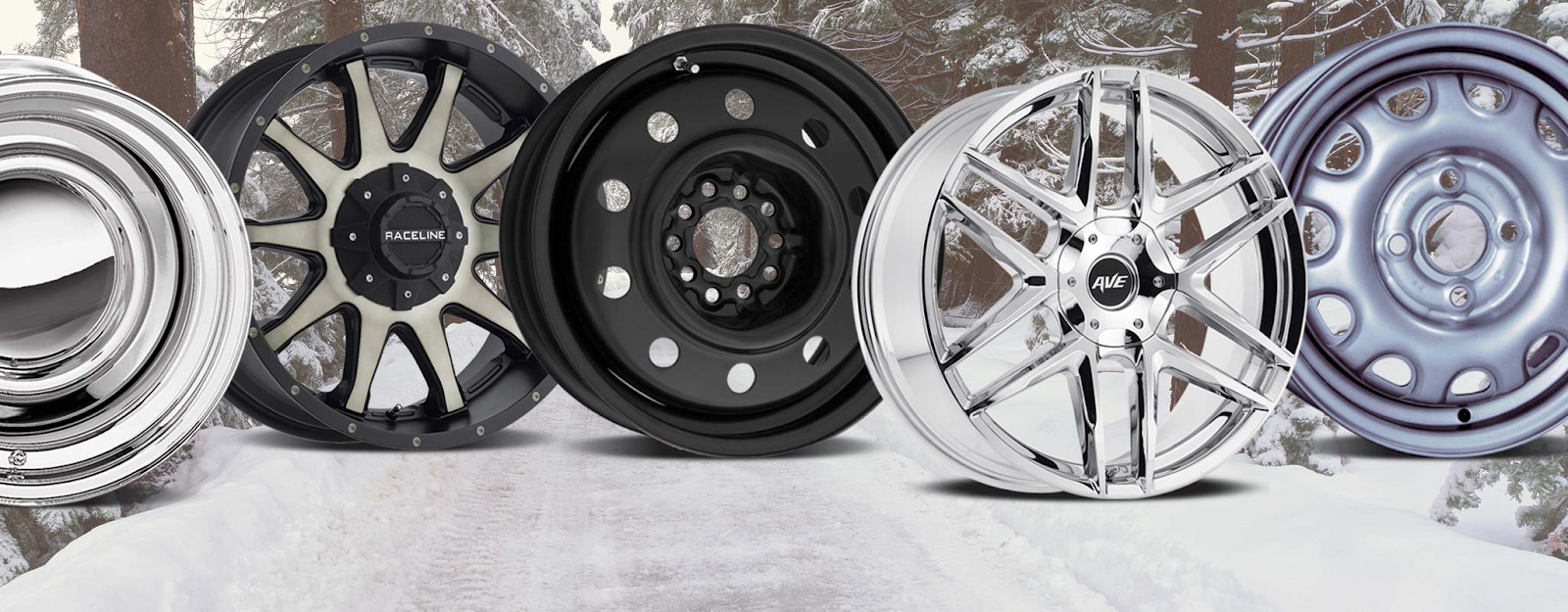
There are many types of aluminum alloy wheel
Aluminum alloy wheels exhibit remarkable versatility across a broad spectrum of types and applications, catering to diverse vehicle specifications and aesthetic preferences. Available in sizes ranging from compact 15-inch alloys to larger 16-inch variants, these wheels are meticulously crafted to meet the specific demands of various automotive categories.
Compact cars benefit from the nimble handling and enhanced fuel efficiency provided by smaller alloy wheels, while sedans and larger vehicles often opt for the balanced performance and stylish design of slightly larger sizes. For SUVs, robust 16-inch alloy wheels offer both rugged durability and a commanding presence on and off the road.
Regardless of size, aluminum alloy wheels not only elevate the performance metrics of vehicles but also significantly enhance their visual appeal, making them a coveted choice for manufacturers and enthusiasts alike. Their ability to seamlessly blend functionality with style underscores their indispensable role in modern automotive design and engineering.
Aluminum alloy wheels are renowned for their distinctive features, prominently their lightweight construction that enhances both fuel efficiency and handling dynamics of vehicles. The primary material, aluminum, not only provides strength but also offers exceptional corrosion resistance, crucial for maintaining durability and appearance over time.
These wheels are crafted through advanced manufacturing processes that include aluminum rim polishing and buffing, ensuring a consistently lustrous finish that enhances their aesthetic appeal. This combination of lightweight design, corrosion resistance, and meticulous finishing processes underscores aluminum alloy wheels as not just functional components but also as key contributors to the overall performance and visual allure of modern vehicles.
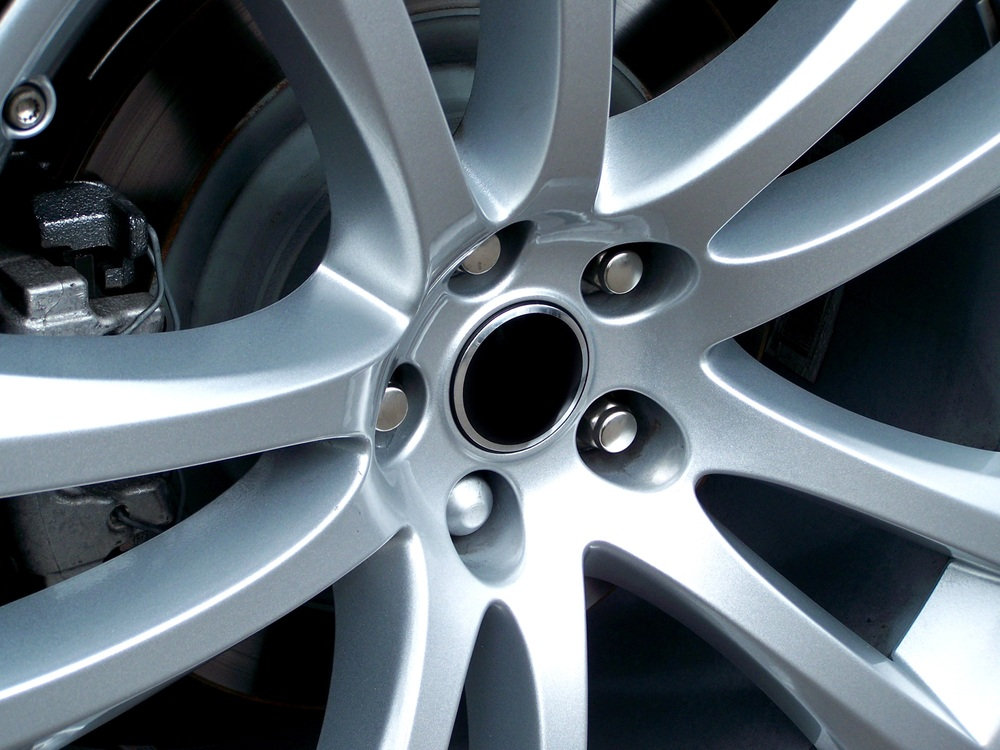
Aluminum alloy wheels are renowned for their distinctive features, prominently their lightweight construction
Choosing aluminum alloy wheels over traditional options provides a multitude of significant advantages that cater to both performance enthusiasts and everyday drivers alike. The primary benefit lies in their lighter weight, which reduces unsprung mass compared to conventional steel wheels. This reduction not only enhances acceleration and responsiveness but also improves fuel efficiency by requiring less energy to rotate.
Additionally, aluminum’s excellent thermal conductivity plays a crucial role in dissipating heat generated during braking. This capability helps maintain consistent brake performance under strenuous conditions and extends the lifespan of braking components by reducing the risk of overheating.
Moreover, aluminum alloy wheels excel in balance capability, delivering a smoother and more stable ride compared to traditional options. This enhances overall handling dynamics and boosts driver confidence on various road surfaces. The ability to quickly dissipate heat from the tire and brake system further ensures reliability and performance in demanding driving conditions.
Aluminum alloy wheels are also compatible with modern tubeless tire systems, enhancing reliability and ease of maintenance. Their diverse range of models and designs allows for customization, catering to individual vehicle aesthetics and preferences while adding a touch of exclusivity and style.
In summary, whether enhancing driving dynamics, improving fuel efficiency, or elevating the visual appeal of a vehicle, aluminum alloy wheels stand out as a versatile and practical choice in automotive design, offering compelling benefits for those who prioritize both performance and reliability.
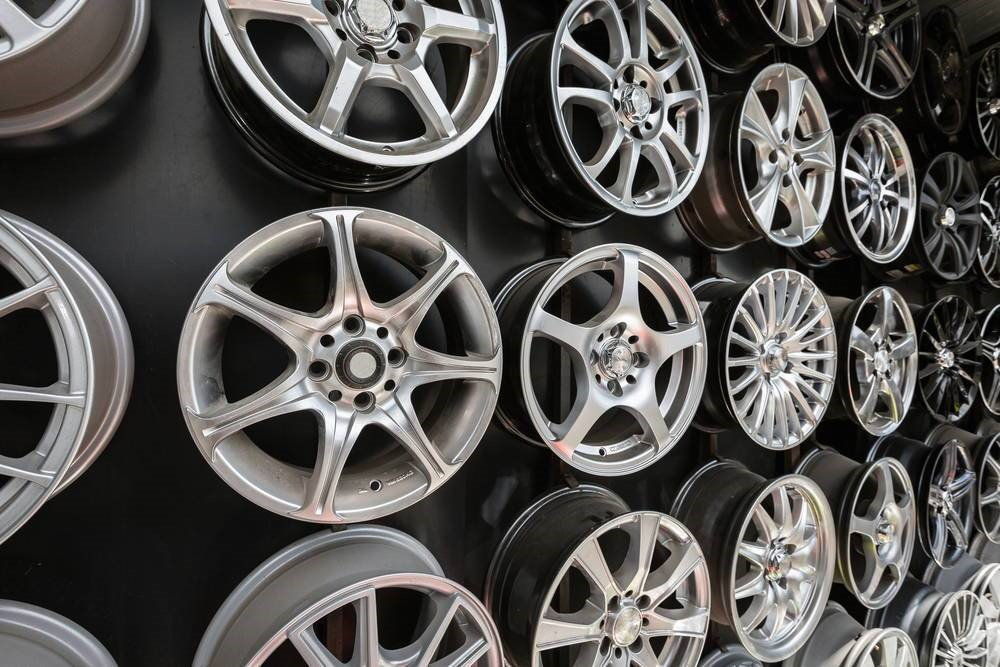
Are Aluminum Alloy Wheels good ?
Choosing the right aluminum alloy wheels involves a thoughtful evaluation of several key factors tailored to your specific needs and preferences. Firstly, consider the make and model of your vehicle, as different cars have varying requirements for wheel size, load capacity, and fitment. Ensuring that the wheels are compatible with your vehicle is essential for achieving optimal performance, handling, and safety.
Secondly, take into account the typical driving conditions you encounter. If you frequently drive on rough terrain or in inclement weather, opt for wheels that offer durability and resilience against elements like salt, moisture, and road debris. Conversely, if you prioritize smooth handling and enhanced fuel efficiency for city driving, lighter-weight alloys may be more suitable.
Aesthetic preferences also play a significant role in your decision. Aluminum alloy wheels come in a wide array of designs, finishes, and colors, allowing you to personalize the look of your vehicle. Whether you prefer a sleek, understated design or a bold, eye-catching style, there’s a wheel option to match your taste.
Lastly, consider the reputation and quality of the manufacturer or brand. Reputable brands usually offer warranties and guarantees for performance and durability, providing peace of mind with your investment.
By carefully assessing these factors—vehicle compatibility, driving conditions, aesthetic preferences, and brand reputation—you can confidently choose aluminum alloy wheels that not only enhance the appearance of your vehicle but also boost its performance and safety on the road.
Ensuring aluminum wheels maintain their pristine condition requires regular maintenance and careful attention to detail. Key practices include aluminum wheel polishing and alloy rim polishing, which help preserve the wheels’ luster and finish over time. For those looking to rejuvenate their wheels’ appearance, options such as painting aluminum wheels or repainting aluminum wheels can effectively enhance their aesthetic appeal and complement the vehicle’s overall look.
When damage occurs, repairing aluminum wheels is a crucial step in restoring both the integrity and visual appeal of the wheel. Professional repair services can address issues such as scratches, dents, or corrosion, ensuring the wheel remains structurally sound and visually appealing. By investing in proper maintenance and timely repairs, owners can extend the lifespan of their aluminum wheels and uphold their performance and aesthetic value for years to come. These practices not only enhance the vehicle’s appearance but also contribute to safer and more enjoyable driving experiences.
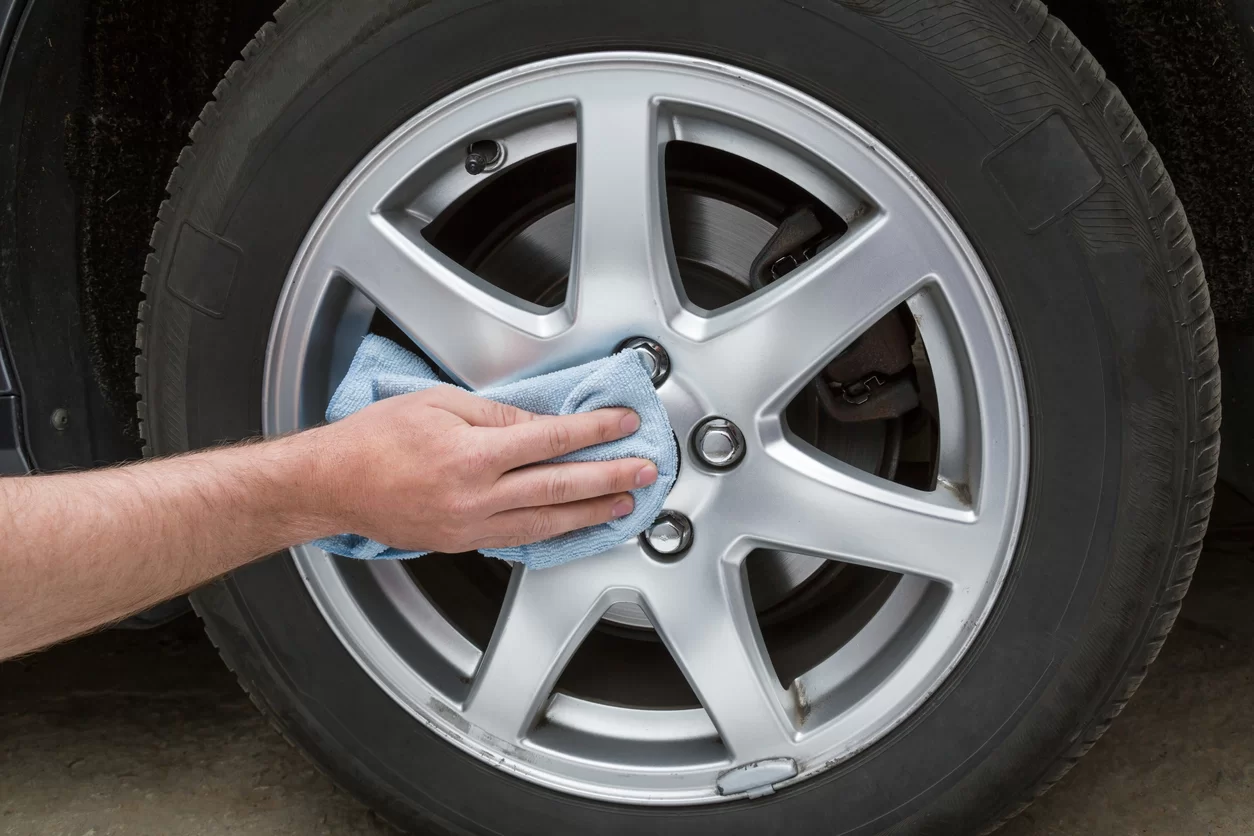
Ensuring aluminum wheels maintain their pristine condition requires regular maintenance
Below is a comparative table highlighting the key differences between aluminum alloy wheels and steel wheels:
| Characteristic | Aluminum Alloy Wheels | Steel Wheels |
| Weight | Lighter | Heavier |
| Strength and Durability | Good strength-to-weight ratio, resistant to corrosion | Robust, less prone to impact damage |
| Heat Dissipation | Excellent thermal conductivity, dissipates heat effectively | Lower thermal conductivity, may retain more heat |
| Cost | Generally more expensive | More cost-effective |
| Aesthetics | Wide range of designs and finishes, customizable | Simpler, more utilitarian appearance |
| Applications | High-performance vehicles, luxury cars | Budget-friendly vehicles, trucks |
| Common Usage | Sports cars, luxury vehicles | Economy cars, commercial vehicles |
| Driving Purpose | All purpose: urban, rural, off-road, mountains
With performance tires Spirited Driving Custom and show vehicles |
Four-season commuting
Work trucks with off-pavement travel Recreational off-roading Traveling in heavy snow |
| Finish Care | Four seasons, with proper maintenance. Chrome-plated and bare polished wheels require frequent cleaning where road deicing chemicals are used. | Easier to maintain |
In summary, choosing between aluminum alloy wheels and steel wheels depends on factors like performance needs, budget considerations, and aesthetic preferences. Aluminum alloy wheels offer advantages in weight reduction, heat dissipation, and customizable designs, making them ideal for enhancing both performance and style in upscale vehicles. Conversely, steel wheels provide durability and cost-effectiveness, appealing to those prioritizing resilience and budget-friendly options. By weighing these factors, drivers can make a well-informed decision that aligns with their specific driving requirements and vehicle characteristics.
EXPLORE MORE
Address
Website: https://stavianmetal.com
Email: info@stavianmetal.com
